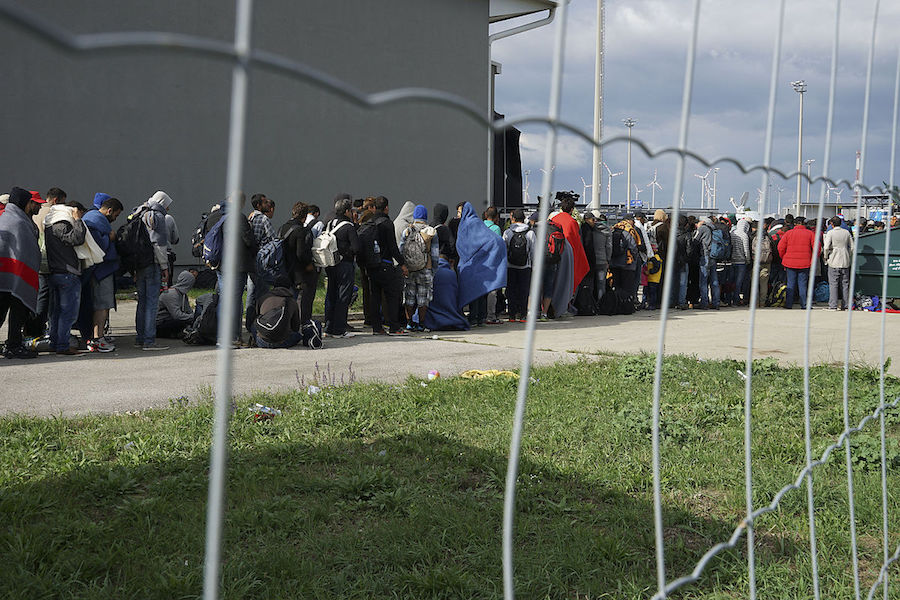
The Syrian refugee crisis, the largest refugee and displacement crisis since World War II, has displaced over 11 million people. Syrians fleeing violence are primarily being hosted by countries that do not have the resources to take care of them. Only a fraction of these 5.6 million refugees are likely to become permanently resettled, leading hundreds of thousands to Europe to file asylum claims there.
The efforts of the Trump administration to limit immigration and refugee admittance has resulted in dwindling numbers of Syrian refugees accepted into the United States. This coincides with a decline in the number of Americans who think the U.S. has a responsibility to take in refugees. Consequently, the U.S. has accepted a grand total of 11 Syrian refugees in 2018. This number — in conjunction with a sharp decline in refugees accepted from a multitude of countries — has put the U.S. on track to resettle the fewest number of refugees in 40 years.
The Syrian Civil War has torn the social and economic fabrics binding citizens to community; hospitals, schools, historical landmarks, utilities and water and sanitation systems are damaged or otherwise destroyed. Ensuing chaos and violence resulted in mass displacement, leading Syrians to look to other countries for assistance, at times to no avail. A child who was 5 or 6 years old when the war started in 2012 would now be 12 years old and has likely never attended a single day of school.
Under the Obama administration, the refugee admittance target was 110,000; within days of Trump’s inauguration, he cut that number by over half, accepting a record low of 45,000 — a number that also poses a stark variance to former president Ronald Reagan’s 200,000 refugee admittance cap.
Much of the rhetoric surrounding the anti-refugee argument is grounded in irrational fear. Politicians and citizens seem to believe that radical Muslims are most likely hiding among Syrian refugees in order to infiltrate the U.S. and carry out violence in the name of Islam. It’s important to note that since the establishment of the Refugee Act of 1980, no person accepted into the U.S. as a refugee has been implicated in a major fatal terrorist attack. The vetting process instituted by the Trump administration has not made Americans any more or less safe than the procedures in place during prior administrations; all it has effectively done is condemn refugees to live in inhumane and dangerous conditions in their home countries or refugee camps, further aggravating an already dire situation.
The inflammatory rhetoric of the Trump era is also corrosive. In an attempt to stoke anti-refugee sentiments, Trump and other Republicans have reduced and compared the Syrian people to a bag of Skittles. The basic concept goes like this: If you had a bag of Skittles, and one of them was poisoned, would you let your children eat it? No, so therefore we shouldn’t let refugees in, right?
Reducing millions of people to a candy that may or may not be poisoned is a talking point intended to instigate fear — and successfully so.
But what appears to be an anti-refugee wave spurred by the Trump administration is really just a larger trend of American skepticism toward refugees that has been in place since WWII. In the years leading up to WWII, many Americans were suspicious of Jews fleeing the Nazis and nearly three-quarters opposed admitting a larger number of Jewish refugees. While Americans were doling out their suspicions, Jews in Germany were being slaughtered en masse. A chronology of American attitudes toward refugees is truly heartbreaking:
1939 — a majority oppose taking in German Jewish refugee children
1975 — a majority fear Vietnamese refugees will take jobs
1993 — a majority disapprove of giving Haitian refugees asylum
2015 — a majority oppose accepting Syrian refugees
In theory, Americans do support admitting refugees. In a poll conducted by Vanity Fair in 2011, participants were asked if the inscription on the Statue of Liberty should apply to immigration; 62 percent said it should. As many studies show, however, this sentiment doesn’t translate well to specific crises or actual policy. Rather, the U.S. adopts this sentiment when it’s too late.
Jews in Germany could have attained asylum in the U.S. if not for rampant skepticism; as a result, Jewish people who could have been saved were instead killed. Consider exactly what that means — because of Americans’ irrational fear and racist attitudes toward Jews, more died in the Holocaust than otherwise would have. And while the U.S. fought a war in Vietnam for democratic purposes, Americans were not willing to accept refugees from a crisis to which they contributed.
President Donald Trump retaliated against Syrian President Bashar al-Assad’s chemical attacks and joint bombings by Britain and France because, according to Trump, “We’re talking about humanity. And it can’t be allowed to happen.” The juxtaposition of President Trump’s invocation of humanity in regards to these attacks and, in contrast, denying refugee admittance makes his response seem more like a publicity stunt rather than genuine concern.
Similarly, the theoretical support of refugees from Americans makes it seem as though they aspire to the ideals of Lady Liberty. However, a history of rejecting and fearing refugees proves that they fail to take action when it is most needed. It’s time that the U.S. actually lives up to its pledged ideals. We can become the country we have always aspired to be.
Written by: Hanadi Jordan — hajordan@ucdavis.ed
Disclaimer: The views and opinions expressed by individual columnists belong to the columnists alone and do not necessarily indicate the views and opinions held by The California Aggie.



